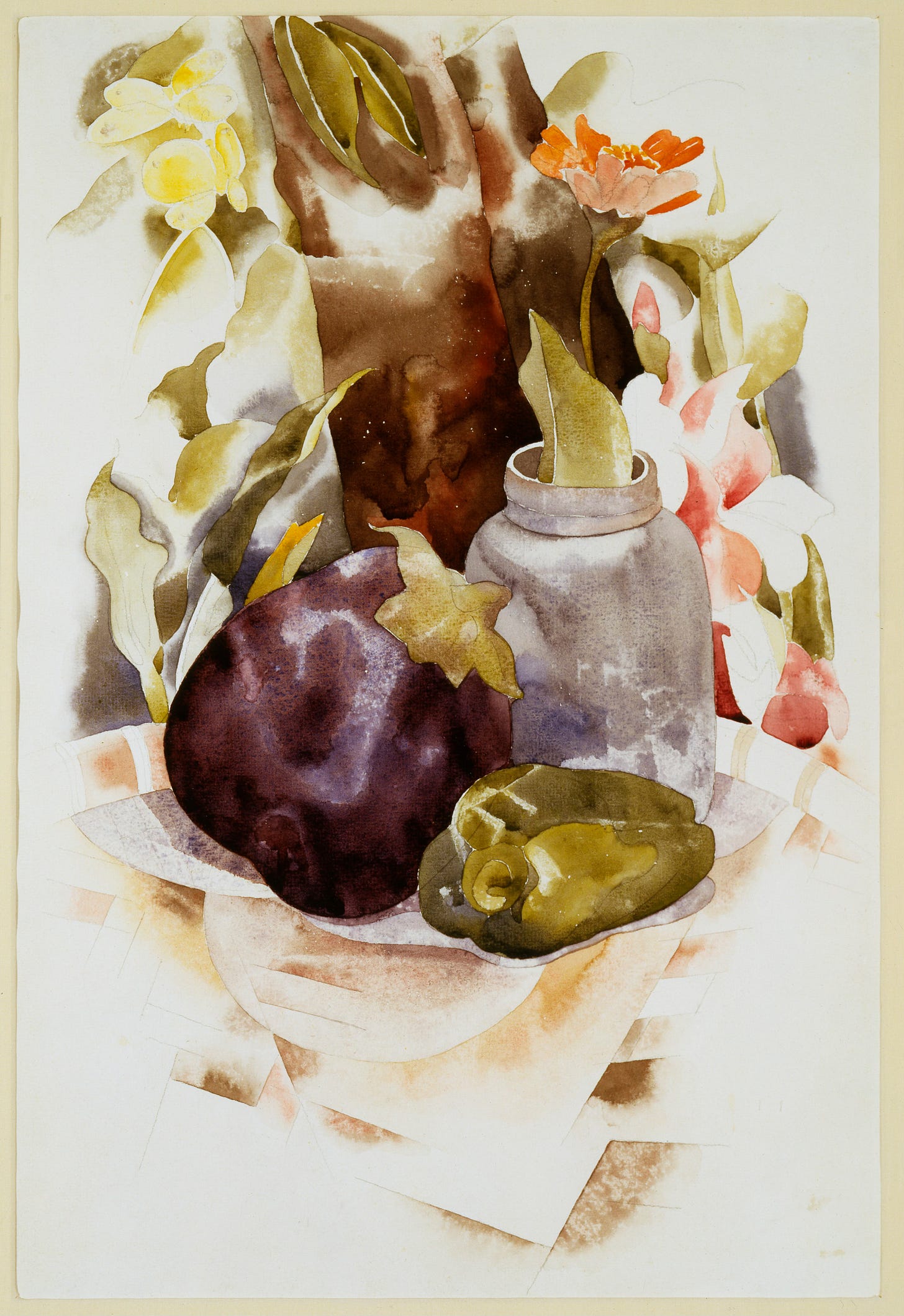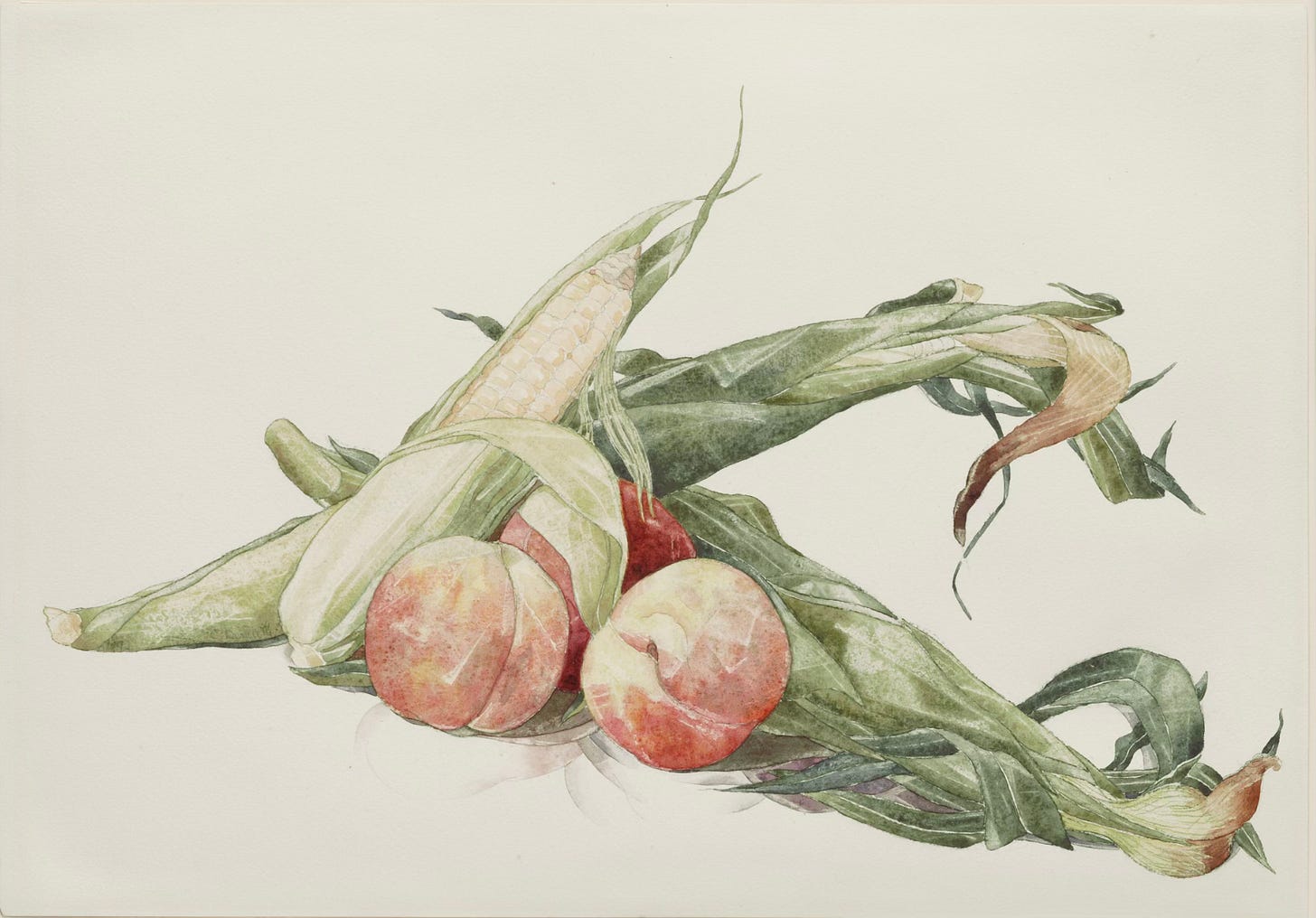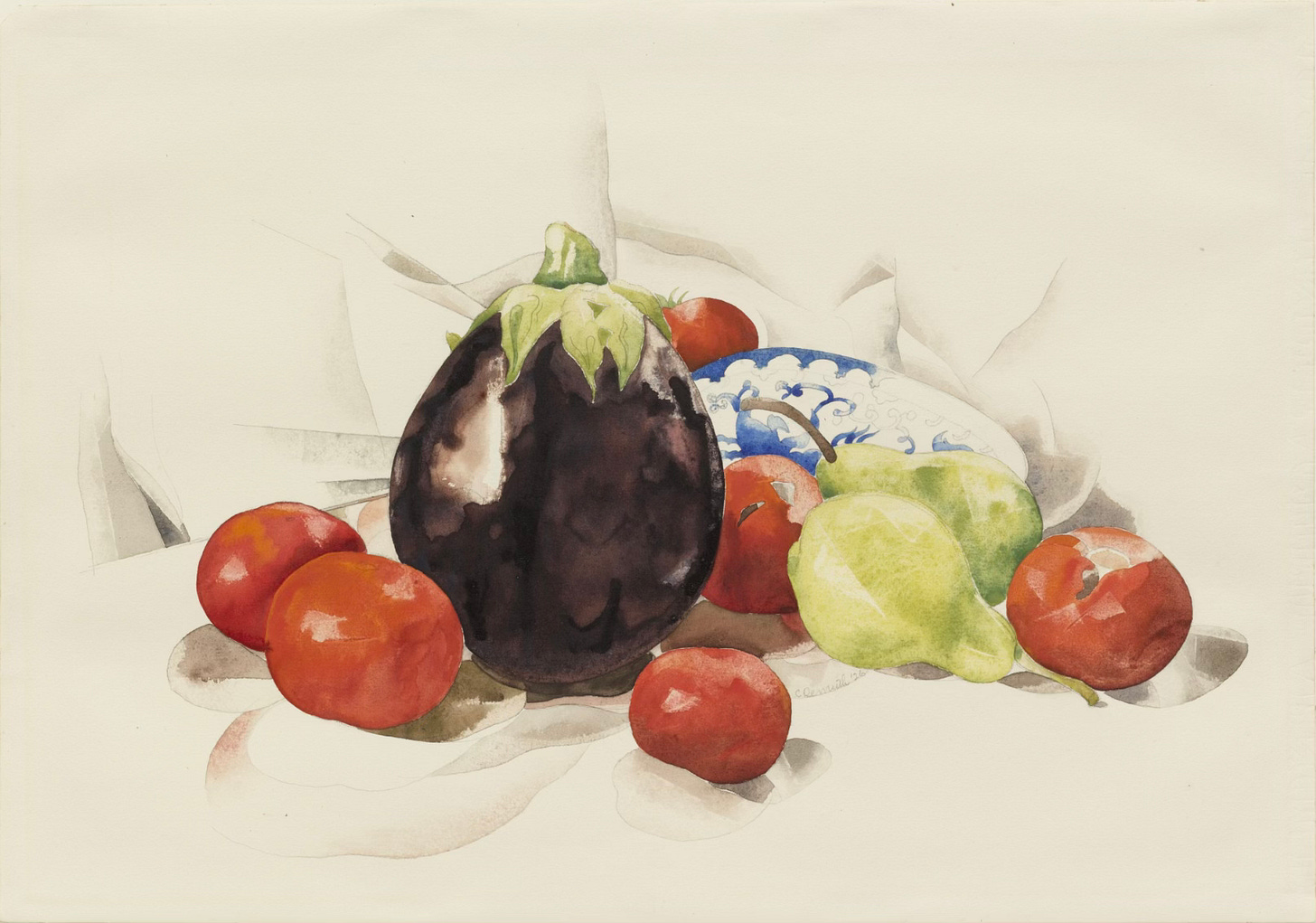The Night Is Coming On
As I prepared for a four-day cruise a few years ago with my daughters, daughters-in-law, and my mother, I was full of happy anticipation—but I also had headaches, and my stomach was frequently queasy. Both symptoms were familiar. As the date of departure neared, I struggled to accept what I had feared all along: that one of my daughters wasn’t coming. Not because she didn’t want to, but because she was being monitored and controlled. On the day the cruise ship left Galveston, my gratitude for a grand experience with these women I loved was dimmed by a sense of frantic worry for my missing daughter.
It had been over a year since I’d begun to grasp the truth of her situation. The muscles in my shoulders always felt tight, pinched. I had difficulty concentrating on anything other than finding a solution that would bring her home. I prayed that she would “come to herself,” like the prodigal son. I prayed that a friend would enter her life who could speak truth to her and persuade her to leave her situation. I prayed for inspiration to know what to say to her. I prayed for books and sermons—words, whether mine or someone else’s—to convince her of her worth, to give her courage, to shine light on the reality of her circumstances. Each time I prayed, I felt my heart lift in hope. Each time she said she’d come home, and then either didn’t come or came and then left, hope went up in flames and I was left standing in the ashes.
In my own fear of pain—the pain I felt each time she returned to a place of cloying words and shame she felt she deserved, each time she missed a family event, each time she promised and then didn’t come home—I began to fear hope. My belief that everything would eventually be fine began to erode. Hope felt ominous and unstable. I wanted to exercise my faith by praying for my daughter, but each time I began I felt hope stirring, and I backed away in fear. This dread of hope was a new experience, and I wondered, If I don’t trust hope, how do I pray?
I’d been praying boldly and specifically. Paul’s fiery words to the Hebrews, “Let us therefore come boldly unto the throne of grace, that we may obtain mercy, and find grace to help in time of need”—which I’d taught when we covered Hebrews 4 in early morning seminary classes—echoed in my mind. I believed in God’s goodness, in the power of Jesus Christ’s Atonement to heal trauma and sin; but if someone I loved didn’t choose God, how could my “boldness” in prayer make a difference? Is “bold” prayer a catalyst for “bold” hope? A tall, sturdy hope, branching and leaf-ing toward the Son, until a heavy downpour weakens the roots and it comes crashing down. The phrase, “Hope deferred maketh the heart sick” (Prov. 13:12) became intensely personal, and I wondered what hope was deferred for Solomon, what caused his pain.
My hopes had been raised by my own wishful thinking, by each of her visits home, by her own admissions of unhappiness. I thought I had a solid grounding in this Church doctrine: God is a loving Father, and we all have agency—including my daughter. How then, could I pray—when my peace rested on the choices of my child?
The writings of C.S. Lewis gave voice to my agony. After his wife’s death, Lewis wrote in A Grief Observed, “What chokes every prayer and every hope is the memory of all the prayers H. and I offered and all the false hopes we had. Not hopes raised merely by our own wishful thinking; hopes encouraged, even forced upon us, by false diagnoses, by X-ray photographs, by strange remissions, by one temporary recovery that might have ranked as a miracle. Step by step we were ‘led up the garden path.’ Time after time, when He seemed most gracious He was really preparing the next torture.” The idea of answered prayers creating false hope resonated in me, and I felt a little less alone.
Recognizing in Lewis a fellow sufferer brought more questions. I wondered about faithful believers, my kin in pain, for whom hope is treacherous—who suffer mistreatment at work, church, in families, or on missions—who boldly pray for deliverance, and then are left to “hope” God will soften the hearts of their persecutors. But what if the tormentors choose not to be changed by God? How can we pray when our peace is riven by the agency of some other person? Or by the circumstances of mortality? What about the prayers of those who are fighting cancer? Or infertility? Or loneliness? How do they pray when a remission doesn’t come, again? Or a pregnancy ends, or doesn’t even begin? When we are suffering, and hope is exhausting?
My wrestle with hope required a paradigm shift—a way to preserve faith in God’s goodness while I placed my hopes and desires on the altar and grieved. During this process, I read the third chapter of Mormon with new eyes. Here, Mormon seems to have experienced a shift as he loved and led his people, who were devolving individually and as a nation. He lamented, “My soul had been poured out in prayer unto my God all the day long for them; nevertheless, it was without faith, because of the hardness of their hearts” (Morm. 3:12). I had read this in the past and wondered at Mormon’s reaction. Didn’t he know that faith is to be centered in Jesus Christ? But with the lens of my own pain, I wondered if he, too, was experiencing a paradigm shift. What if he’d assumed that God would be able to change the people if Mormon believed hard enough? Perhaps he was wrestling with what faith is, and whether hope is always present in tandem. Roughly thirteen years passed as Mormon watched the Nephite and Lamanite armies retake and lose multiple times, in a bloody loop, the city Desolation (what tragic irony!). However, Mormon seemed to have laid his hopes for the repentance of his people upon the altar, where they were consumed. Later Mormon writes that he was “without hope” (Morm. 5:2). But I wondered if, in surrendering hope in a specific outcome, he found his faith.
As I allowed my bold hopes for my daughter to be consumed, my prayers shifted from “Help me know what to say or send to influence her” to “This is so painful, and I don’t know how to find relief. In my darkness, please stay with me.”
During this time, I shared my pain and fear with a friend. Karen shepherds her seven children with a love that has the slow heat of a steady fire. She, too, has adult children who are hurting. Over lunch in a local cafe, we grieved together the bold hopes surrendered for our suffering children, ashes where hope had once been. Karen told me she looked for “tiny miracles” each day as a way to feel God’s love for her.
Karen’s words reminded me of an experience I’d had years earlier. During our time in Kansas, my husband planted a garden bordered by 2 x 4 wood slats, which were only the first line of defense against the pests who spent all summer trying to gain access to our suburban crop. At the corners of the garden were metal poles that held up chicken wire. In order to gain access to the garden, one needed to unhook the chicken wire at one corner where it overlapped, and then hold it back while squeezing through the opening.
We didn’t use pesticides in our garden—this was less about organic gardening and more benign neglect, to be honest. As a result, a variety of insects took up residence in the garden and feasted all summer long. Then squirrels parachuted into the garden from nearby trees. They were fans of the tomatoes and would perch on fenceposts, making eye contact with us through the back windows while munching on our newly ripened crop. Rabbits ate our peas and the tops of our carrots—which kills the carrots, by the way.
One summer, these intruders were particularly successful, and the only thing that really survived was peppers—green bell and jalapenos, specifically. I don’t particularly like either of them. So, what to do with peppers, the only thing even the bugs and critters didn’t want?
I made sweet chili sauce and salsa, and I added chopped green peppers to every dish where I could successfully hide them. I gave peppers away to ward members and neighbors. I bought pumpkins, winter squash, peas, and tomatoes at the grocery store, which made me a little sad.
Around this time, I read Paul’s first letter to the Corinthians, where he reminds them that according to the law of Moses, they weren’t to muzzle the oxen that work in the field. In other words, let the ox enjoy the corn while he’s working the field. Paul then makes this seemingly mundane law a spiritual, applicable one. “He that ploweth should plow in hope; and he that thresheth in hope should be partaker of his hope” (1 Cor. 9:10). I thought of the garden in my yard, filled with green peppers and jalapenos. We had “plowed” in hope of so much more—but there was still a harvest.
So when Karen spoke of “tiny miracles,” I thought of green peppers. The peppers weren’t what I looked forward to; however, they were a harvest and a reminder of a gardener. In my pain, when what I most desired was beyond hope, I needed reminders of God’s presence. As I looked for His work in my life, a belief that He was also working in the arid patch my daughter inhabited began to take root.
I searched the scriptures for examples of prayer in suffering. I read David’s lament in Psalm 13. In the opening lines of the psalm he asks, “How long, O Lord? Will you forget me forever? How long will you hide your face from me? How long must I bear pain in my soul?”
He begs for the Lord to reveal himself: “Answer me, O Lord my God! Give light to my eyes.” I, too, asked “how long” when it seemed my prayers for relief had been denied, but I found solace in the closing line of this Psalm: “I will sing to the Lord, because he has dealt bountifully with me.” This line seems to be an answer to David’s question, “How long will you hide your face from me?” I considered the idea that I could see God’s face—and his goodness—when I softened my expectations and looked for his bounty.
I returned to C.S. Lewis, in A Grief Observed. Says he, “On the other hand, ‘Knock and it shall be opened.’ But does knocking mean hammering and kicking the door like a maniac? And there’s also ‘To him that hath shall be given.’ After all, you must have a capacity to receive, or even omnipotence can’t give. Perhaps your own passion temporarily destroys the capacity.” I reflected on my prayers of specificity. Could they have obscured my ability to perceive God’s workings?
Gradually, as months of questioning, reading, talking, and remembering gave way to a dawning understanding, my prayers shifted. I didn’t pray the bold prayers of false hopes—of specific things I thought would bring my daughter home. Instead, I pleaded for peace for myself and my husband, for deliverance—however that looked—for my daughter, and for evidence of God’s presence in my life. I found him in quotidian ways; I sifted each day for nuggets of God’s goodness. I still felt sadness and worry for my wanderer, but I was no longer consumed by her choices. Hope returned, but it was not bold hope in specific outcomes. It was gentle hope, carried like bubbles on an awareness of God’s gifts to me. During this time, his love was evident in the blessings that buoyed me. Conversations with my other adult children. The antics of grandchildren. A new friend. Watching a sunrise over the Texas pines in my backyard.
When hope in outcomes begins to feel dangerous—when it has the potential to become a downward spiral of worry and despair—looking for evidence of the Gardener has become a lifeline. As the Savior prayed, “Give us this day our daily bread,” I ask for sustenance and strength for today. Then, like the Israelites in their wilderness wanderings, I look for manna—or green peppers—for the echo of God’s presence. As I find the echo, the ashes of my bold hopes scatter with the wind where they nourish a garden sanctified in suffering and a new, gentle hope.
LeAnne Bingham Hansen is a recent transplant to Conroe, Texas, where she acquired her first pair of cowboy boots and is learning the difference between “y’all” and “all y’all.” Her essays have been published in Wayfare, Segullah, and Exponent II.
Art by Charles Demuth (1883–1935)








